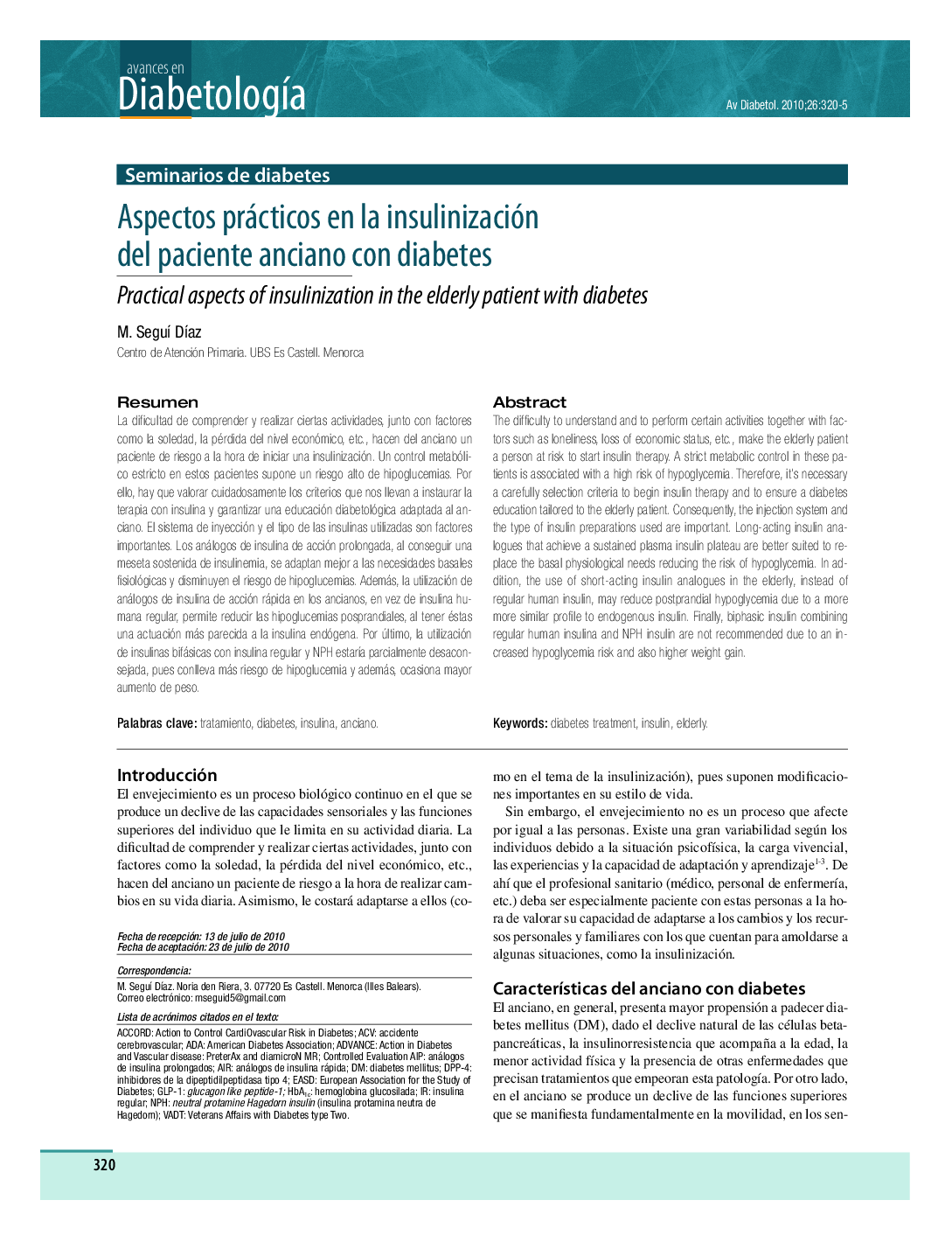| Article ID | Journal | Published Year | Pages | File Type |
|---|---|---|---|---|
| 3253849 | Avances en Diabetología | 2010 | 6 Pages |
Abstract
The difficulty to understand and to perform certain activities together with factors such as loneliness, loss of economic status, etc., make the elderly patient a person at risk to start insulin therapy. A strict metabolic control in these patients is associated with a high risk of hypoglycemia. Therefore, it's necessary a carefully selection criteria to begin insulin therapy and to ensure a diabetes education tailored to the elderly patient. Consequently, the injection system and the type of insulin preparations used are important. Long-acting insulin analogues that achieve a sustained plasma insulin plateau are better suited to replace the basal physiological needs reducing the risk of hypoglycemia. In addition, the use of short-acting insulin analogues in the elderly, instead of regular human insulin, may reduce postprandial hypoglycemia due to a more more similar profile to endogenous insulin. Finally, biphasic insulin combining regular human insulina and NPH insulin are not recommended due to an increased hypoglycemia risk and also higher weight gain.
Related Topics
Health Sciences
Medicine and Dentistry
Endocrinology, Diabetes and Metabolism
Authors
M. Seguà DÃaz,
